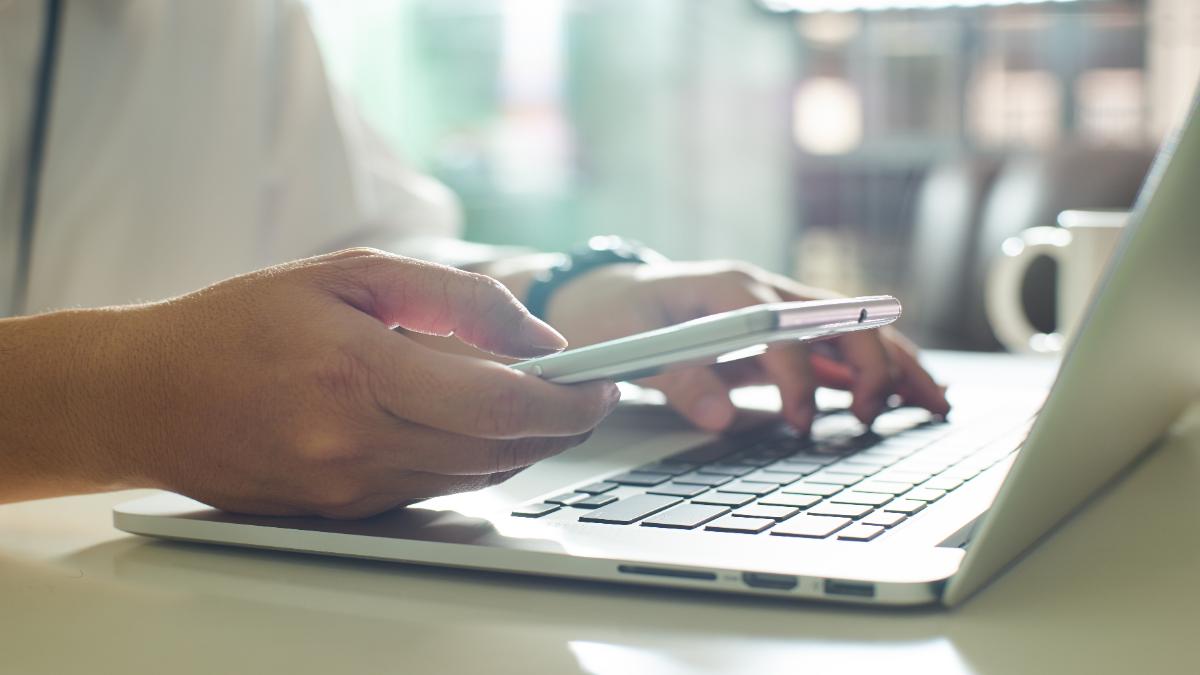On Friday, December 6, an aviation student from Saudi Arabia opened fire in a classroom at the Pensacola Naval Air Station (NAS) killing three people in the attack and injuring eight others. Another Saudi student recorded the shooting events as it unfolded. The shooter was identified as Mohammed Saeed Alshamrani, an aviation student from Saudi Arabia. The assailant’s name doesn’t really matter because the question in these national security threats remains the same.
How does law enforcement obtain personal information off smart devices in a timely fashion?
What role does cell phone privacy play when it comes to terror attacks such as the most recent Naval Air Station attack?
Leading computer forensic expert Lee Neubecker, CEO & President of Enigma Forensics discusses with the Data Diva, Debbie Reynolds of Debbie Reynolds Consulting about the many technical tools in their arsenal that’ll offer solutions in these cases.
Cell Phone Privacy: Naval Air Station Attack – Final Video of 4-part series
The transcript for Cell Phone Privacy – Naval Air Station Attack follows:
Lee Neubecker: Hi, I’m back again with Debbie Reynolds, the data diva. Thanks for being on the show again.
Debbie Reynolds: Thank you, Lee.
LN: So, we’re finishing up our multi-part series relating to cell phone forensics, as it relates to the FBI’s desire to get Apple and other information from the cell phone makers so that they can unlock their phones.
DR: Right, so there was a recent shooting, unfortunately, in Pensacola, at the Naval Air Station and because there were people who were recording the attack, they’re interested in being able to get information from those cell phones and this is renewed calls, as was the case with the San Bernardino attack in California in 2015, to have Apple help law enforcement unlock particular cell phones of folks.
LN: Yeah, as Debbie was saying, with the Pensacola Naval Air Station, what had been reported in the associated press was that a Saudi national student who was getting training out of the navy facility, which, our government trains foreign nationals and other militaries and has been doing that for a long time but some of the Saudi students had been watching, earlier that evening, they had been watching videos of mass shootings before the shooting took place. And during the shooting that she said, one of the students had been recording the events as they unfolded and likely has data on cell phones and other information.
DR: Right, I think the issue is, you know, is law enforcement able to get this information without accessing the cell phone and the chances are, possibly yes. But there are many different ways to get it.
LN: Yeah but this week they asked Apple for help to get in and they said they haven’t been able to get in the phone but like what happened with San Bernardino, it’s not entirely clear if they had fully used their capabilities, like their mobile access unit, had that unit exhausted their capabilities, had they reached out to third party vendors and computer forensic consultants and firms, like myself or others.
DR: That does this every day, yes.
LN: Or even the Israeli firm, called Cellebrite, which makes the equipment used by many forensic people, like myself, that was ultimately successful in unlocking the San Bernardino terrorist’s phone.
DR: Well, the one thing I will say is, in 2015, the phones have gotten a bit more advanced, the encryption is better but if, for example, people are taping things on cell phones, typically, they’re sharing it with other people so you may be able to get the information from another person’s phone, if the phone is backed up, you may be able to get the data from a backup, you may be able to get phone records about who they were calling or who they were texting, even though you may not get the actual footage, there are a lot of different ways to triangulate this information.
LN: And if they plugged their cell phone into their computer, a lot of times, it will automatically create a backup file but, in this case, I think the, you know, the FBI has a legitimate interest in wanting to know who were they texting right beforehand, were other people involved so I support that but I think that there are different means of how to accomplish their goal.
DR: Absolutely, absolutely. So, I think, the way that the story was told in the media, it makes it seem as though the only way the information can be gotten to is to have Apple or other cell phone makers create a vulnerability that anyone can use on any phone and I don’t think that that’s exactly true.
LN: No.
DR: Because we’ve not seen that in the field and many of us work with cell phones every day.
LN: Well, there was, recently disclosed, a vulnerability in every iPhone up to, not including, the very latest model but every iPhone relating to the Bootrom, where the phone can be, you know, basically, bootlegged and taken over until it’s rebooted, then it resets so I’m sure that there’s already bypass means on 95% of the iPhones out there, since most people aren’t running the latest model but again, the concern here is that it almost seems like there’s an effort to try to change the policy, you know, Director Comey, from the FBI, Former Director Comey had repeatedly stated that we need to be able to defeat encryption but by its nature, it’s like saying everyone should have weak locks on all their doors and companies shouldn’t lock their stuff up so that’s going to lead to problems in, you know, as I said, in the prior segment, a multi-key solution that has unlocked but specific to an individual user’s cell phone, with approval by the court, I think that is a much better solution than having a master key that can open up any phone.
DR: I think so and, I mean, we’ve seen in other cases, even though it’s not about terrorism, obviously, with the Jussie Smollett issue in Chicago, they were able to get a ton of information so they went to Uber, they had surveillance cameras, they had phones, I mean, the–
LN: They get GPS records on phones.
DR: Oh, all kinds of stuff.
LN: You can get cell phone tower records and then you have all these third-party apps like, you know, the secure Signal and WhatsApp, well, is it very secure if you get one of the two phones?
DR: Right.
LN: Not exactly because you can see all the messages.
DR: Oh, absolutely and I think Paul Manafort, unfortunately, found this out the hard way when he was using WhatsApp to chat with people about illegal dealings and the forensic folks were able to get the exact chat and all the texts because he had backed it up to his iPhone or his iCloud, I believe, so.
LN: It’s interesting now, you discover, these days, when things get involved with what was intent on a business deal gone wrong or was there fraud or misrepresentation, you know, getting, finding out what the text messages are and who was texting with which party and what did they say, that can be very important and litigation, still, it seems that text messages are just starting to come upon the attorney’s radar, for asking for that information.
DR: Well, it’s coming up on their radar ’cause people use many different means so someone may start with an email and then go to maybe Snapchat or go to texts, so.
LN: Or Slack.
DR: Or Slack so there are many different, yeah, right.
LN: You’ve got these other platforms that are just, that should be part of the discovery, that are getting ignored, unless you have an attorney or advisors, like us.
DR: Yes.
LN: Helping to make sure that you get that information.
DR: Exactly, exactly, it’s not easy because it’s not as linear as you think it would be but if you know that you have this information, that it’s out there, it’s possible to find ways to get it. Obviously, the cell phone would probably be the easiest way to at least be able to help you point to where things are but there are different ways to be able to get the information, not necessarily, so you do need the cell phone for the actual texts, the text message but.
LN: But sometimes people have that hooked up to their computer too.
DR: Yes, that’s true, right, that’s true.
LN: So their computer might have, you know, people who have an Apple laptop and running that, you might be able to get the messages off the laptop, which is yet another means of getting the data and then, you know, there are entities that do log the messages in between so you have the servers that they cascade through so there’s a lot of places that the information can be found and, you know, before a mass policy change is made to just by giving an open key, you know, people need to think this through because, you know, we had keys, master keys that open in the past, those keys have gotten leaked and it’s created a lot of problems.
DR: No, absolutely, I think that’s the villain in almost any little movie you could think of, someone who has a master bit of information that can rule the world so this is definitely something that needs to be thought through and we already know that there are, you know, other things that can be done that don’t require, currently, a master key.
LN: Yeah, well, one of the ways that all of you can show your appreciation if you like our videos, is click like, share the videos out and sign up for our blogs and check ’em out, thanks a bunch for being on the show again.
DR: Thank you, Lee, this was fantastic.
LN: Have a good day, everyone.
DR: Goodbye.
More about Cell Phone Privacy
Enigma Forensics can help gain access to locked personal devices. Choose an expert!
More on Naval Air Station: Cell Phone Privacy.
FBI says…Deceased Assailant’s Locked Phones a Hurdle for Investigators.
https://www.fbi.gov/news/stories/naval-air-station-pensacola-shooting-called-act-of-terrorism-011320




